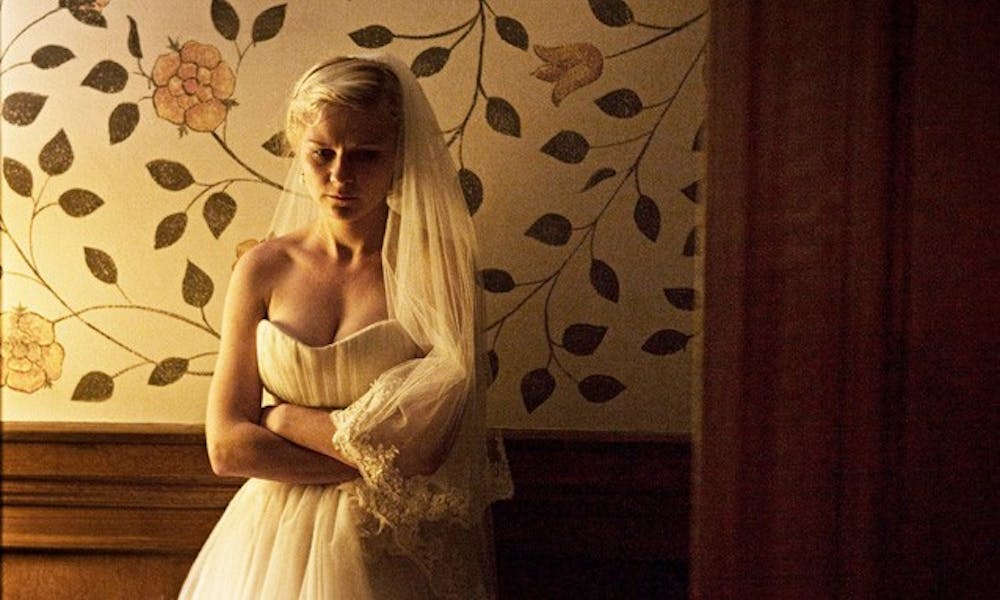Melancholia is not a good movie. At least, not in the sense that it has a protagonist that you root for and a narrative arc of triumph over adversity that leaves the characters better off than they were before. Not all good films must conform to these conventions, but in order to provide entertainment and fulfillment to an audience, most of them do.
But film is also an art form, and one of the primary goals of art is to provide an altered version of reality that allows us to understand our own world – the “real” reality – in a way we couldn’t before. And, as a work of art, Melancholia—the latest feature film from controversial Antichrist auteur Lars von Trier—shines.
The film revolves around the melancholic bride Justine (Kirsten Dunst) and her seemingly hyper-rational sister Claire (Charlotte Gainsbourg), as the former makes every attempt to sabotage the lavish wedding that was painstakingly planned by the latter.
In the first act, “Justine,” we progress through what is perhaps the most uncomfortable wedding in cinematic history. Through this experience, we come to understand in the most visceral way what abject depression is like—not because we are told about it, but because we feel it. Every ostensible feature of the wedding is perfect—the decor, the food, the setting—and we are right there with Claire and her husband John (Kiefer Sutherland) in thinking, “Okay, Justine, just smile and be happy about it.” But even though everything looks right, it all feels wrong. From Justine’s marriage-hating mother (Charlotte Rampling) to her drunken father (John Hurt) to her tactless boss (Stellan Skarsgard), there is a lurking eeriness behind the whole event. We feel the irrationality of depression and are made to understand that it does not follow the simple model of “Get what you want, be happy.” We are at once frustrated with but understanding of Justine’s sadness, and it makes us uneasy.
In the second act, “Claire,” the looming shadow of doubt is made literal, as it is more concretely revealed that an unknown planet will pass by Earth in an unprecedented cosmic event. That is, unless the two planets collide. Now even the sensible Claire, who is nearly driven to madness by the approaching planet, knows the feeling of helplessness, of an all-consuming fear.
The success of Melancholia is its ability to make even the most hopeful experience hopelessness and to make even the very rational feel a chasmal pit in the stomach. And then, just when it has brought you down, it will make you see the beauty in the end of the world.
Get The Chronicle straight to your inbox
Signup for our weekly newsletter. Cancel at any time.

